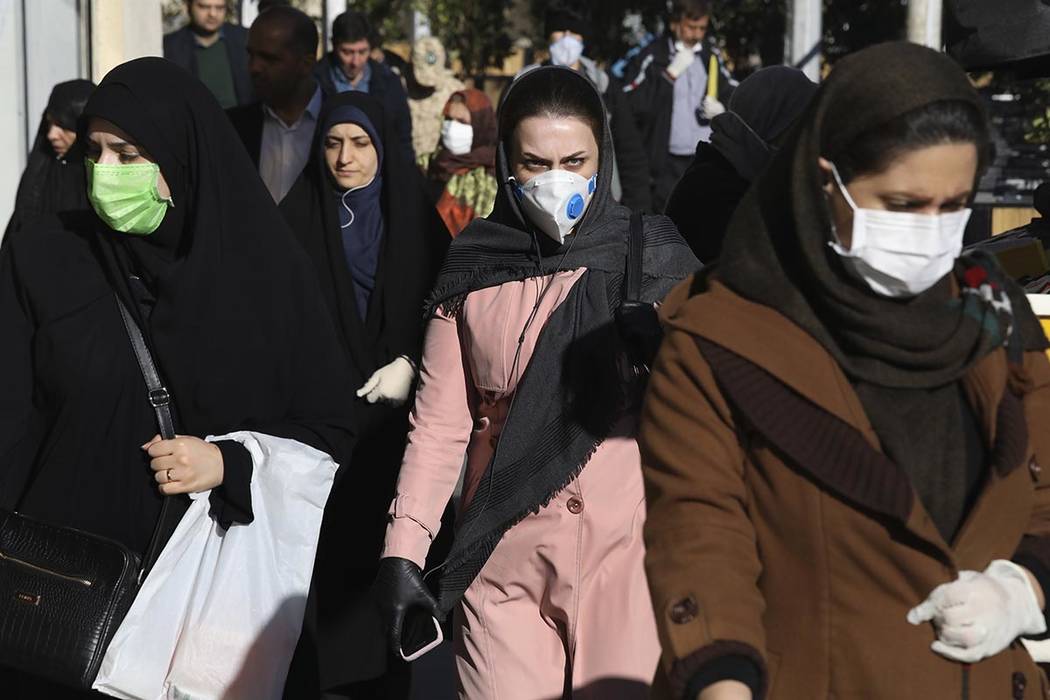US surgeon general tells public to stop buying face masks

The U.S. surgeon general is urging Americans to stop buying face masks in an effort to avoid exposure to the new coronavirus.
In a tweet on Saturday, the surgeon general’s office implored, “Seriously people – STOP BUYING MASKS!”
It went on to explain that the masks aren’t effective in protecting the general public from COVID-19, but a shortage could prove dangerous for health care providers and patients who are already sick.
Seriously people- STOP BUYING MASKS!
They are NOT effective in preventing general public from catching #Coronavirus, but if healthcare providers can’t get them to care for sick patients, it puts them and our communities at risk!
https://t.co/UxZRwxxKL9— U.S. Surgeon General (@Surgeon_General) February 29, 2020
Worldwide, more than 90,000 people have been infected and more than 3,000 have died. The vast majority of patients are located in China. In the U.S., coronavirus cases have been identified in Arizona, California, Florida, Illinois, Massachusetts, New York, Oregon, Rhode Island, Texas, Washington and Wisconsin.
Six U.S. deaths from coronavirus have been reported in Washington state, where a patient died Sunday at the same hospital where the first U.S. death was reported Friday. Both patients had underlying health concerns. Details on the four deaths announced Monday have not been released.
As of Monday, the Center for Disease Control and Prevention reported that the general American public are at low immediate risk for contracting COVID-19, even in communities where cases of the virus have been reported.
The CDC outlines appropriate protective gear for health care workers that include respirators, which are different from common gauze surgical masks.
However, the CDC does not recommend wearing surgical masks or respirators in public, because the former are ineffective and the latter are largely unnecessary.
Masks not considered protection
Surgical masks are designed to protect the wearer from splashes of chemicals or bodily fluids and to block the wearer’s coughs or sneezes, the CDC states, but do not adequately filter out airborne particles and are not considered respiratory protection.
In short, surgical masks will protect others from you if you’re already sick, but not the other way around.
Some Las Vegas Valley health care providers say they are already having problems getting masks.
Dawn Garrett, the office manager for Comfort Care Dental Group in Las Vegas, said the office ran into problems when ordering face masks a week ago. The business usually buys a case with about 2,400 masks when it restocks, but Garrett said its supplier limited the purchase to two boxes — a total of 200 masks — because supplies were so low.
Comfort Care has enough masks stocked up to last a few months, but Garrett said the business could run into issues down the road if the shortage continues.
“We would have to cut back on some procedures,” she said. “Some we can do without masks, but our large cases, surgeries, we’d have to postpone.”
Garrett said the staff scrounged around for other ways to buy masks, but online stores like eBay and Amazon have spiked prices; boxes of masks are in the $50 range, whereas they usually sell for $6 or $7.
People should “leave (the masks) to the professionals,” she said. “We need it for our health and safety, as well as the patients’.”
The CDC stresses that the general public is better off using common sense preventative measures, including proper handwashing, especially after coughing, sneezing, blowing your nose or going to the bathroom and before eating or preparing food. If you cough or sneeze into a tissue, throw it away immediately.
The CDC says people should keep an eye out for COVID-19 syptoms, which resemble those of the flu, and stay home if they’re feeling sick.
Health authorities continue to recommend getting a flu shot to avoid contracting the flu on top of a COVID-19 infection, and to help preserve resources that could be dedicated to fighting the coronavirus rather than the seasonal flu.
For more information and the latest news on the virus, visit the Review-Journal’s dedicated webpage at reviewjournal.com/tag/
Contact Max Michor at mmichor@reviewjournal.com or 702-383-0365. Follow @MaxMichor on Twitter. Review-Journal staff writer Bailey Schulz contributed to this report.